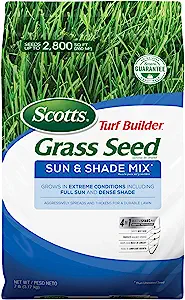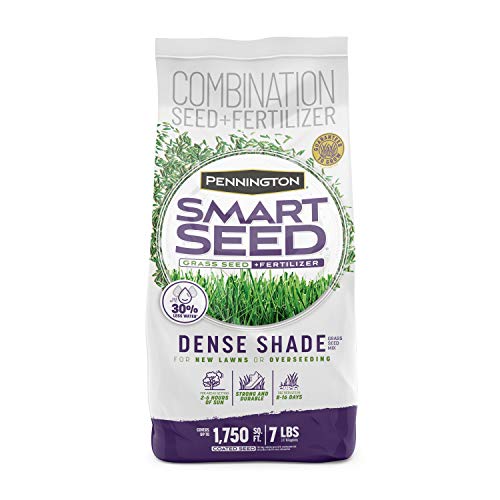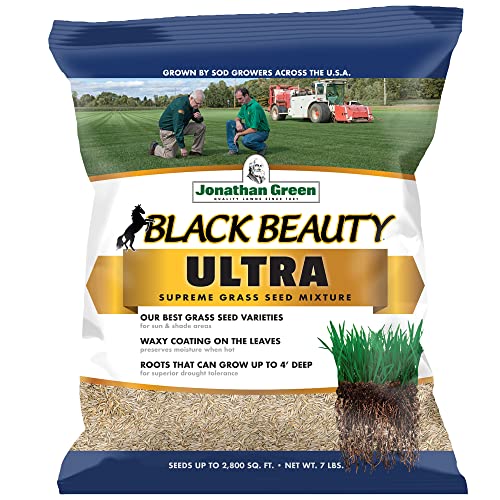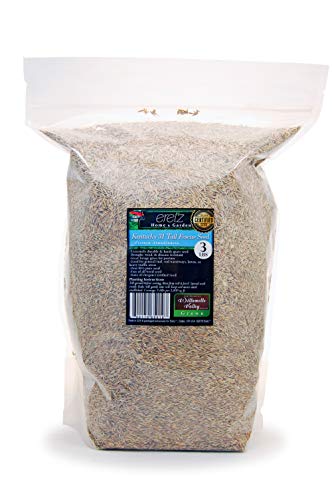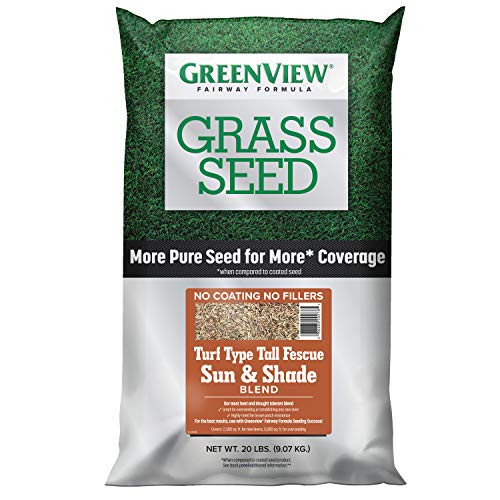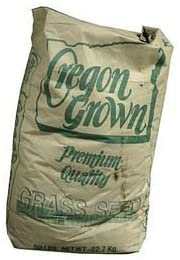The grass is always greener on the other side, but when it comes to some lawns, it's more like the grass is nonexistent. Thankfully, getting your grass to grow and thrive doesn't have to be a chore when you have the right grass seeds. That's why, in this review guide, we're taking a look at some of the best grass seeds of 2024 that will offer versatility, great coverage, and visual appeal. For us, Scotts Turf Builder Grass Seed stands out among the rest, thanks to its widespread, ample amount, and excellent growth even under sun and shade. Let's take a look!
Our Top Picks For Grass Seeds
Buying Guide: Grass Seeds
Grass seed is a cheap and effective way to get grass on your lawn. It does take a while and the results may not be perfect, but for what they can do, these seeds are worth the money. To choose the right grass seed for your lawn, you’ll need to understand the different types available and their suitability for your lawn’s conditions. Warm-season grasses like Bermuda and Zoysia thrive in hot weather and go dormant in cool temperatures. Cool-season grasses such as Fescue and Kentucky Bluegrass grow vigorously in the spring and fall and are better suited to northern regions. Consider the amount of sunlight, local climate, and foot traffic before purchasing the right choice can impact the health and appearance of your lawn.
What is Grass Seed?
Grass seed is a seed that, when planted, grows to form grass, a short plant that comprises mainly of long leaves. Because of the general classification of grass, it can grow as short as a few inches or as much as tens of meters in height. Because of how short and small modern lawn grass is, many seeds are required to fully cover an area with grass.
Why Do You Need Grass Seed?
Here’s why you may want to buy grass seeds.
They make your lawn look alive
There’s a reason why many suburban homeowners invest so much money in their lawns. Anybody who owns a patch of land will want to make their lawn look as lush and lively as possible, and this is very easily done with grass. Grass provides that natural green color that makes your living space look cozy and warm. It’s also great to walk on and offers other benefits, such as oxygen production.
They produce oxygen
Speaking of oxygen, did you know that just 25 square feet of healthy grass is enough to produce one day’s worth of oxygen for an adult? Even if you don’t have any other trees or plants growing at home, grass is enough to keep those oxygen levels high enough for you to breathe clean, fresh air. And unlike trees and larger plants, grass still leaves you with plenty of space for events, parties, and a nice place for some rest and relaxation.
Things to Consider When Buying Grass Seed
Keep these tips in mind when buying grass seed.
Type
Grass isn’t just “grass”. It’s more of an umbrella term for different species and types of plants that all fall under the “grass” category. As such, there’s plenty of diversity among grass types, with some excelling in certain aspects than others. For this reason, you will need to be familiar with different types of grass, mainly based on one aspect – weather conditions.
Unlike other plants, grass is relatively sensitive to the weather. If not grown in ideal conditions, it will lose color and even die, which is never a good thing. You want to primarily base your decisions on the environment where you plan on planting the grass seeds. Some grass types grow best in temperate to colder climates. Others prefer growing under the sun. While there are outliers for each different type of grass, it’s important to look for one that you really like, since that grass will stay on your lawn for years to come.
Size
“Size” in this case can refer to two different things, though they’re both closely related. You’ll want to consider the size of your lawn, as well as the overall size of your seed pack. More seeds mean more coverage for your lawn, but you can make good estimates thanks to product descriptions. Many seed packs mention how much surface area they can cover, so you can plan on what you need to buy.
Location
The location of where you’re planting your grass is just as important to consider as the type of grass itself. By knowing what type of environment your grass will grow in, you can narrow down your choices more easily and figure out which spaces are ideal for grass growth. Some grass can grow under a bright, hot sun, whereas others prefer shade. Some grass can even handle both conditions without too much problem. Remember, you can’t move grass the same way you can move around a potted plant when it’s in the wrong spot. Once it’s there, it’s there. Consider carefully where you plan on planting the grass and pick your type accordingly.
Height
The height of grass may not sound that important, especially because many people mow their lawns regularly. But the truth is that not everybody does, and if you have a large space that’s full of grass, you might prefer mowing your lawn less frequently than others. Leaving grass to grow for too long will allow the grass to grow to its full height, so you may want to consider what it’d look like when fully grown.
If you’re planting grass seeds that are commercially sold, chances are that they won’t grow too high. They may grow high enough that it’ll become obvious to your neighbors, but it won’t become terrible to look at. Alternatively, you can look for slow-growing grass, which is grass that doesn’t grow at the regular rate of other grass. You can go for even longer without having to mow your lawn, allowing you to focus more time on other endeavors.
Grass Seed Price Range
Unlike other seeds, grass seed is somewhat pricey, especially in large quantities. For small to medium-sized lawns, expect to spend anywhere between $20 and $100 for a pack of seeds enough to cover your lawn. For larger areas, you’ll be spending far more. Note that if you’re planting on an existing lawn, then you’ll need far fewer seeds – typically half the amount required in any given area.
Grass Seed FAQ
When should I plant grass?
Generally, you'll want to plant grass during spring or fall, though some sellers also recommend ideal planting times on their store page.
Can I plant grass seeds by throwing them?
Although efficient, throwing seeds can cause them to dry out fast, which prevents germination. You want to either have existing grass protect the seed or cover it in a thin layer of topsoil for ideal growth conditions.
Why should I buy grass seed?
Grass seed is a smart choice because it's cost-effective, provides a wider variety of grass types, and is less labor-intensive. It also allows for a healthier and more resilient yard.
Are there different types of grass seed?
Yes, there are different grass seeds, and each is meant for different needs. Warm-season types like Zoysia excel in heat, for example, while cool-season varieties such as Kentucky Bluegrass prefer milder climates. Some, like Tall Fescue, need less water, and others, like Fine Fescue, grow well in shade, offering diverse choices for lawn care.
Can I grow grass without grass seed?
You can grow grass without traditional seeds by laying sod, planting sprigs, or using plugs. These methods are useful for quickly establishing a lawn, repairing patches, or simply when seed sowing is not feasible.




